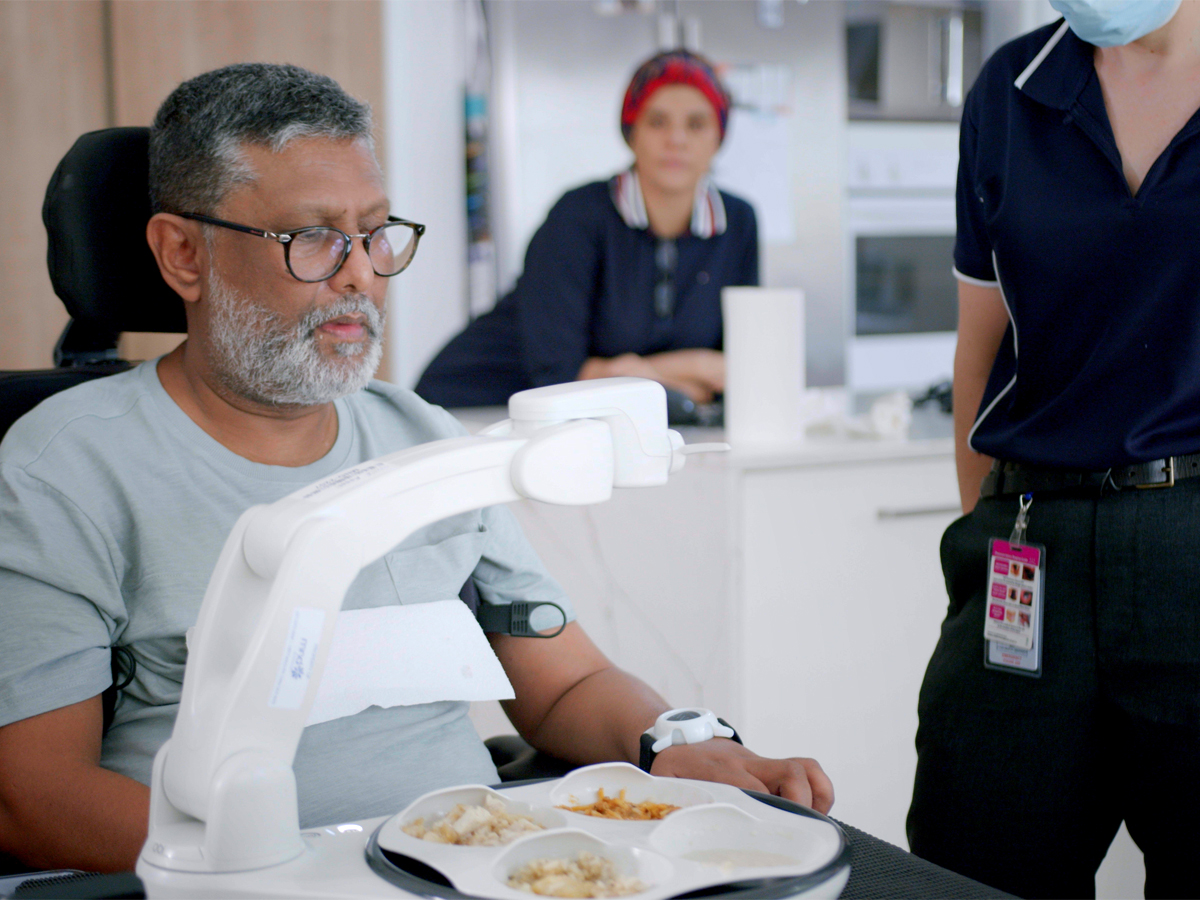Assistive technology is being rolled out Mater in Home community health care services, to help Queenslanders with degenerative conditions like motor neurone disease (MND) feed themselves, send emails and texts.
Two systems have been trialled by Kemal Omar, a 57-year-old IT professional who was diagnosed with MND four years ago.
The Obi eating device allows users to feed them themselves by operating a robotic arm with fingertip controls and eye movement. The NeuroNode Triology system enables users to control a screen through eye movements, helping them browse the internet, watch TV, send and receive SMS and email messages.
“Before Obi there were always two people missing from the table, myself and the person feeding me,” he said. “But with the Obi, the family can sit at the table together and it removes the guilt I felt of taking someone’s time to feed me.”
Mater at Home operations manager Geoff White said there was increasing demand for healthcare services to be delivered to people in their own homes and communities.
“New technology, and advances in existing technologies are enabling us to meet this need while also reducing the number of people requiring admission to hospital,” he said. “Caring for people in their own homes, among their family, friends and communities, often leads to improved outcomes and quality of life.”
Occupational therapist Rachael McDonough said the introduction of the NDIS had become a ‘gamechanger’ for MND patients under 65, by finally providing secure public funding for state-of-the-art, life-changing assistive technologies.
“I’m amazed at how far robotic technology has come and the difference it can make to people’s live,” she said. “Our goal at Mater at Home is to give people choice and control and this exciting technology is helping us achieve that.”
The new technology was restoring independence to those with MND and other degenerative conditions, allowing them to stay connected with friends and loved ones and to continue pursuing interests and hobbies, Mater at Home speech pathologist Amanda Fogarty said.
“Eye gaze technology allows people who have lost their voice to speak with their eyes, and that’s made a huge positive difference to Kemal and his family.”
Caption: Kemal Omar

